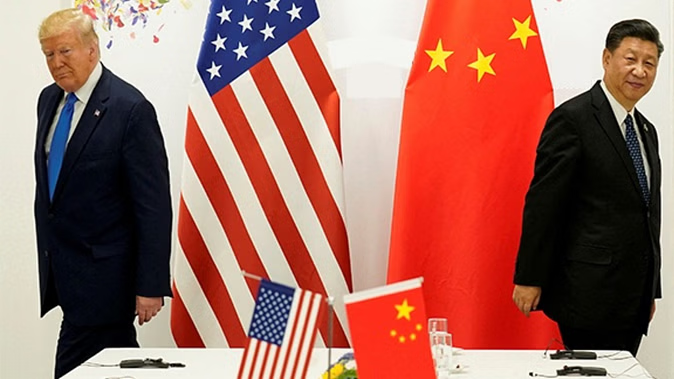US vs China: Beijing Slams Trump’s Actions, Accuses America of Escalating Trade Tensions
Tensions between the United States and China continue to rise, with Beijing expressing strong dissatisfaction over a series of decisions made by the Trump administration. China has accused the U.S. of deliberately provoking fresh economic and trade conflicts, further straining the already fragile relations between the two global powers.
The latest controversy stems from the U.S. government’s decision to begin canceling visas of Chinese students studying in America and to impose strict export controls on advanced semiconductor chips. These actions, according to Chinese officials, violate the spirit of recent trade negotiations and damage the foundation of mutual trust.
China’s Ministry of Commerce issued a sharp statement criticizing the U.S. for unilaterally disrupting progress made during the Geneva trade talks held last month. “President Trump’s decisions go against the consensus reached in Geneva. While China has remained committed to the agreement by suspending certain tariffs and non-tariff measures, the U.S. continues to escalate tensions through provocative actions,” the ministry stated.
The statement also highlighted that Washington’s latest moves have led to growing instability and uncertainty in the economic relationship between the two nations. “Instead of fostering cooperation, the U.S. is now undermining bilateral trust. This not only hurts China’s interests but also violates international norms and the spirit of negotiation,” the ministry added.
China has also issued a stern warning, vowing to take firm countermeasures if the U.S. does not reverse its recent decisions. “We will continue to defend our national interests with strength and resolve,” the Chinese government warned, adding that Washington is shifting blame and unfairly accusing China of breaching agreements.
The diplomatic spat intensified after former President Donald Trump posted a statement on Truth Social, alleging that “China has completely violated its agreement with us,” adding that “there’s no longer any reason to be Mr. Nice Guy.” In remarks at the Oval Office, Trump further stated that he intended to speak with Chinese President Xi Jinping to discuss the escalating tensions.
This latest flare-up comes amid an ongoing trade war that has seen both countries imposing tariffs on each other’s goods. Although the Geneva meeting had led to a temporary truce, with both sides agreeing to reduce tariffs for 90 days — the U.S. cutting duties on Chinese goods from 145% to 30%, and China lowering tariffs on American products from 125% to 10% — the recent moves have threatened to unravel those fragile gains.
China has reiterated its stance that it is adhering to the agreement and expects the United States to do the same. “The path to cooperation must be based on mutual respect and trust. Unilateral actions will only push us further apart,” the Commerce Ministry said.
As global markets react to the growing uncertainty, analysts warn that continued friction between the world’s two largest economies could have long-lasting consequences on global trade and geopolitical stability.
